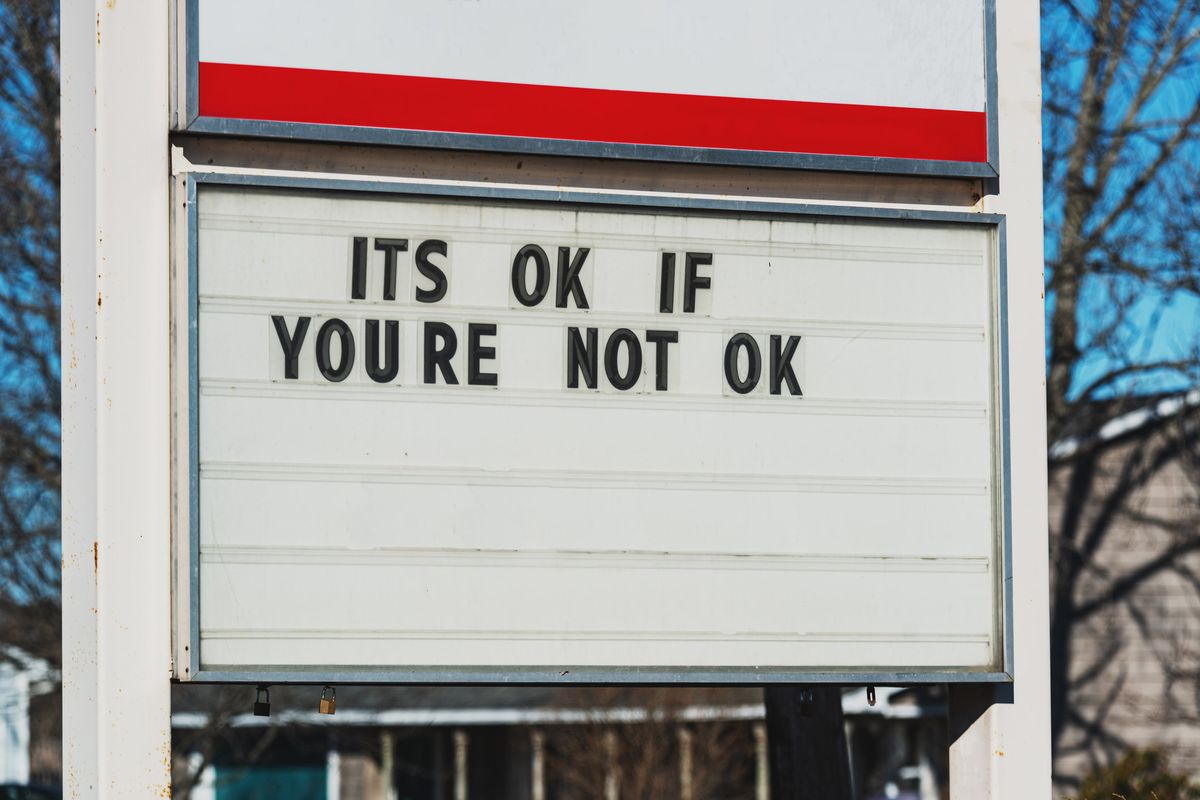On a recent call with my three best friends, I burst into tears. "I'm stressed about everything," I sobbed, surprising myself.
Our calls are usually a hoot, but it turned out we were all feeling spent. Our brains are on a constant loop of: Family. Work. Politics. Money. Healthcare. Plastic never breaks down. Repeat.
Experts say burnout is what happens when you've reached your limits mentally, emotionally and physically. Most of us are already there: In a 2025 poll, more than 6 out of 10 adults said they’re experiencing some form of burnout.
Stressed out or burned out?
Everyone feels overwhelmed from time to time, but the mental and physical consequences of prolonged stress can lead to serious health problems, including heart disease, high blood pressure and obesity.
Burnout — the chronic state of physical or emotional exhaustion that involves a sense of reduced accomplishment and loss of personal identity — is a direct result of excessive, prolonged stress.
The scary part is that you may not even know you're on the verge of burnout. Common symptoms of stress include headaches, muscle pain and insomnia — which can be downplayed or overlooked because, well, you're stressed out.
According to Lori Gordon-Michaeli, LCSW, who specializes in experiential psychotherapy, stress management is not an option — it's a necessity.
"Stress creates energy in the body and the mind, so it's important to do something both mental and physical to remove the energy every day — or at least on a weekly basis," she explained. "Otherwise you can have all kinds of things besides the anxiety, depression, racing thoughts or overthinking — it can cause everything from bad decision-making to physical illness."
Something as simple as a 15-minute walk around the block can make a big difference, according to Gordon-Michaeli. But any physical activity you do, such as yoga, dance or lifting weights is going to have a positive impact on your mental and physical health.
Another way to reduce stress is to belt out your best Lady Gaga. One study linked singing to decreased levels of the stress hormone cortisol. Earlier studies also showed that music can reduce stress among surgical patients.
How to recover from burnout
Research shows that women tend to report higher levels of stress and feel less supported compared to men.
"It is feeling like there is an obstacle in front of you that you can't overcome because you're so overwhelmed," Gordon-Michaeli said. "The best thing to do is to acknowledge that it's OK. Give yourself permission to feel burned out," she said, adding that it will help remove the resistance.
Gordon-Michaeli recommends taking a day off of work to deal if you’re seeing signs of burnout. Distract yourself with a fun television show or movie; the point is to take a break from thinking by occupying your mind with an activity and breaking that link to negative thoughts.
After you take that day, try incorporating stress management and rearranging your time to ensure that you make the time to rest — because if you don't, your body and brain will demand it.
Another tip: Make plans to do something that excites you. "When you're burned out, you need to have something to look forward to," Gordon-Michaeli said.
Find your happy place
Gordon-Michaeli said rethinking your work routine can help avoid burnout. If you work from home, designate one room that is just for work, and do not enter that room unless you're at work. For those who don't have that luxury, after you've dressed for work, get in your car and drive around the block. When you re-enter your home, consider yourself to be at work. At the end of the day, close up shop, get in your car, and drive around the block on your way home.
"It is a psychological thing to set your brain up to understand that you're at work . . ." said Gordon-Michaeli. "And when you leave, and you're coming home, you can leave the workday behind you and you don't mix the two."
For those who are really struggling with negative thinking, Gordon-Michaeli recommends adding a positive to every negative thought. So, you may think, I hate meetings. Follow up with, at least I get to see my co-workers. "It neutralizes the negative thinking a little bit," she said.
And if you're struggling with stress management or awareness exercises, think of your days as 24 hours and anything beyond that is not in your reality. "Take care of today and tomorrow will take care of itself," said Gordon-Michaeli. "For most people that helps minimize worry."







